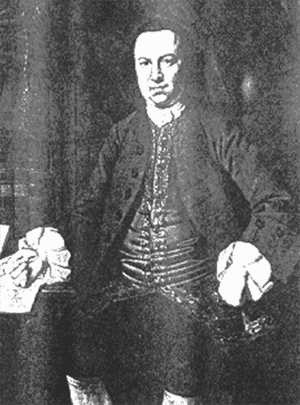
Christopher Smart, whose recent two-hundred-and-ninety-year-old birthday anniversary was celebrated on April 11, was one of the most influential 18th century English poets. His works perpetuated a new idiom for English poetry of the time. Confined to an insane asylum during the creation of his poem Jubilate Agno, Smart gained a unique perspective and interpretation of the natural world. Devoid of human contact, Smart spent his time in the asylum in the company of his cat Jeoffry, who is the focus of the most recognized section of Jubilate Agno. The “Jeoffry section” has been incorporated into many children’s texts and presented as a simplistic poem about a cat. Although simple, Smart’s work is extremely complex in content. He avoids sweeping descriptive statements and foregrounds detailed observations of every movement of his cat or the natural phenomena he envisions. The interpretations of Jubilate Agno are numerous, but it remains undeniable that his poem is a vigorous attempt to capture and record the minute details of the world around him. His syntax and terse poetic style mirror the rough form of the Psalms and greatly diverge from the harmonious structure common to 18th century poetry. Smart’s unique idiom creates a jarring and shocking impression on its reader, which could almost be described as sublime, as characterized by Edmund Burke. His unusual form encourages the reader to gain a new perspective of poetry, which parallels Smart’s unique vision of the natural phenomena around him.
For Smart, as for many modern poets, poetry holds a dual purpose. It was a means for him to create a sense of freedom in his life of adversary and perpetuate his reader to attain a new perspective of the world.
So here’s to Smart and his ability to view beauty. And here’s to summer and the good weather that makes it all the more important to take Smart’s lead and appreciate the extraordinary within the ordinary.
